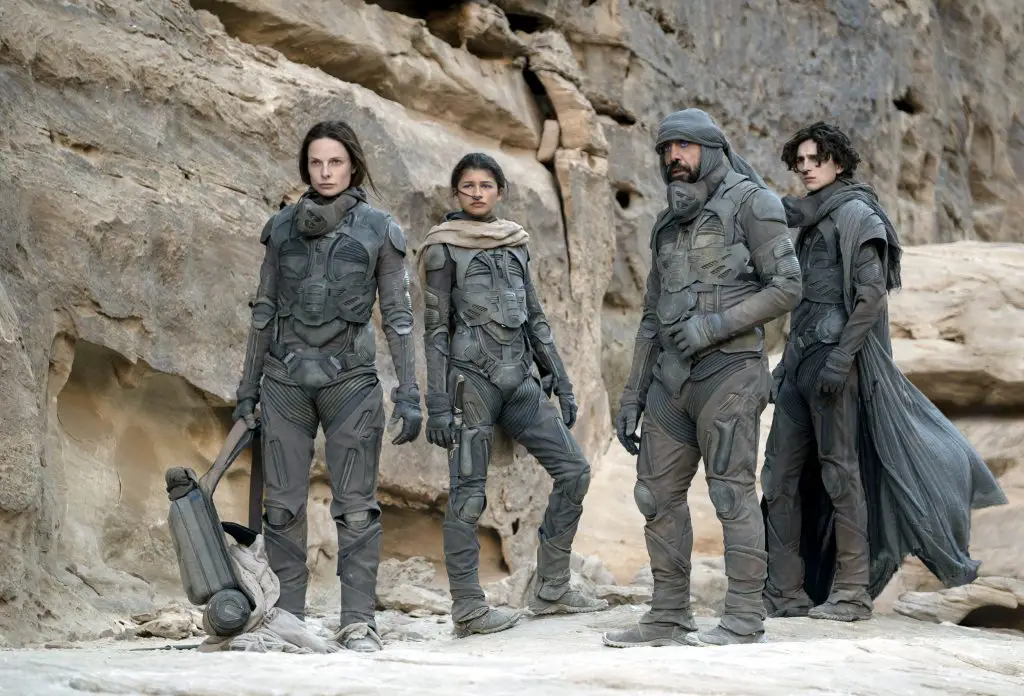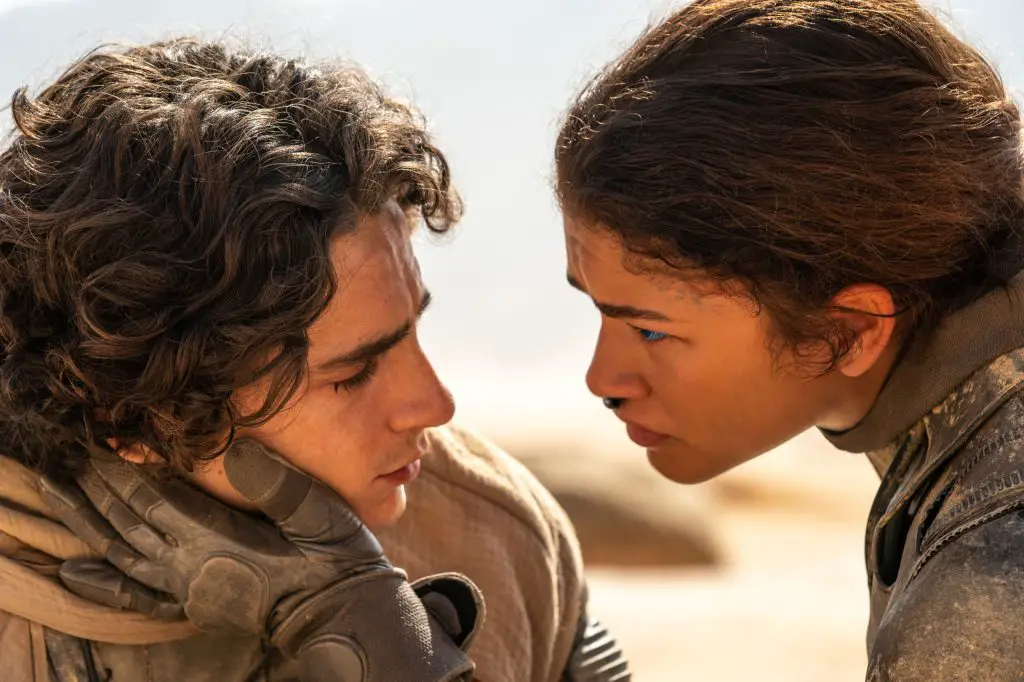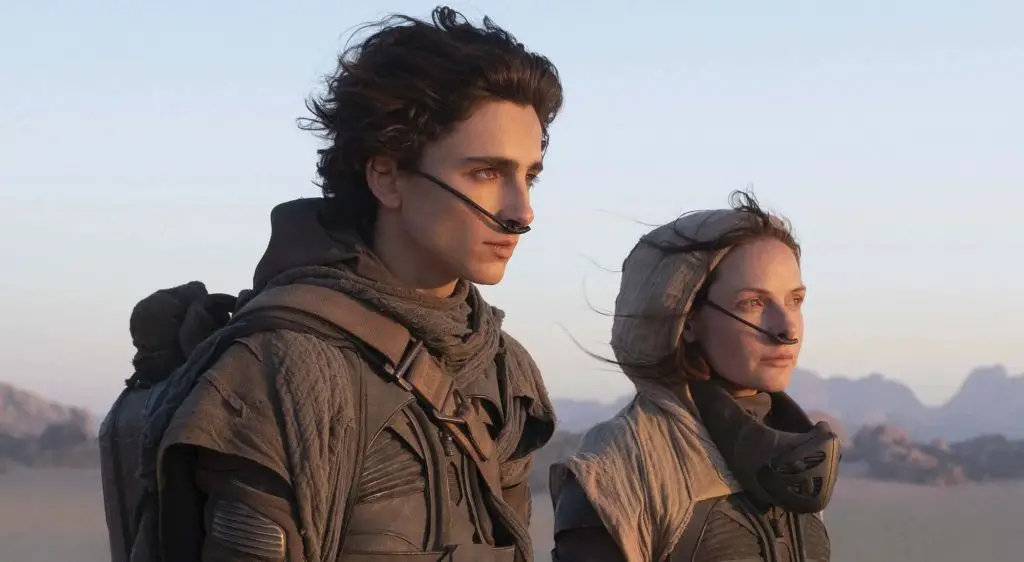In the illustrious year of 2021, visionary director Denis Villeneuve, renowned for acclaimed films such as Prisoners, Sicario, Arrival, and Blade Runner 2049, astounded the globe by masterfully transforming Frank Herbert’s 1965 magnum opus, Dune, into a riveting cinematic experience. In an era darkened by the COVID-19 pandemic, Villeneuve’s rendition of Dune shone brightly, etching a mark of success for Warner Bros., and not only garnered a staggering ten Academy Awards nominations but triumphed with six wins. The anticipation for Dune: Part Two is palpable, marking it as one of the most awaited films of the year.
The future of the Dune cinematic universe beyond Part Two lies in the hands of Villeneuve, the devoted production team, and the studio. It may be that they choose to conclude the saga with Dune: Part II, pursuing new endeavors. However, Villeneuve has expressed potential interest in expanding Dune into a cinematic trilogy. What lies beyond this potential trilogy remains uncertain.
Yet, a universal constant in the realm of entertainment is that quality breeds an audience. As long as the standard of quality remains steadfast, there will be a captivated audience eager for more. Should the Dune universe expand, the daunting challenge will not solely lie in preserving the quality, but in discerning when to cease the expansion of the Dune cinematic universe.
The Scope for Future Dune Films

The grand epic of Frank Herbert’s Dune spans over eight primary books, all equally engrossing and detailed. The saga unfolds through Dune (1965), Dune Messiah (1969), Children of Dune (1976), God Emperor of Dune (1981), Heretics of Dune (1984), Chapterhouse: Dune (1985), Hunters of Dune (2006), and finally Sandworms of Dune (2007). While Frank Herbert penned the first six novels, Hunters of Dune and Sandworms of Dune were brought to life posthumously by Brian Herbert, Frank Herbert’s son, and renowned science fiction writer Kevin J. Anderson, guided by notes left behind by the elder Herbert.
Interestingly, Villeneuve chose to bifurcate the original 1965 classic into two parts, finding the story too rich and expansive for a singular film. If this approach extends to the adaptation of the sequels, we might be looking at a future teeming with possibly sixteen or more films set in the enigmatic universe of Dune.
Warner Bros. Discovery and Their Ambitions for Dune

Without a doubt, the wealth of source material at hand could fuel the Dune franchise for decades to come. This prospect, while enticing, comes with its own unique set of challenges. The evolution of the Dune narrative is filled with fantastical concepts and story arcs that push the limits of imagination. The books delve into progressively outlandish scenarios, presenting ideas that are unique to the Dune universe, which both the general audience and producers must be prepared to embrace for further films to materialize.
Despite the potential challenges, Villeneuve has expressed a keen interest in adapting Dune Messiah as the third installment of the series, though concrete plans remain to be confirmed. The performance of Dune: Part Two will likely be a pivotal determinant in shaping the franchise’s trajectory. Dune Messiah explores the darker ramifications of Paul’s immense power in intricate detail, a narrative arc Villeneuve has proven adept at handling.
Announced in 2019, two years prior to the theatrical release of Dune, a series titled Dune: The Sisterhood is currently under development. Set a millennium before the first film, the series aims to chronicle the lives of two Harkonnen sisters establishing the revered Bene Gesserit sect. The series gained momentum following the success of the first Dune film, but the production hit a roadblock in February 2023 due to the exit of director Johan Renck and stars Shirley Henderson and Indira Varma. Although the production commencement date remains undecided, Warner Bros. Discovery clearly envisages Dune as their next colossal multi-media franchise.
The Question of How Many Films to Make

As Ian Malcolm, portrayed by Jeff Goldblum in the 1993 iconic film Jurassic Park, famously quipped, “Your scientists were so preoccupied with whether they could, they didn’t stop to think if they should.” This cautionary sentiment needs to be at the heart of any discussion concerning the expansion of the Dune franchise. Villeneuve’s split adaptation of the first Dune book involved substantial financial investments, implying that further films are contingent upon a consistent return on investment.
The challenges may compound as the series progresses. Even ardent fans of the original novels concede that the later books adopt a more eccentric narrative style and are generally perceived as inferior to their predecessors. Furthermore, the saga also takes a cue from the likes of Game of Thrones, featuring beloved characters’ brutal deaths and their replacement with new ones. This cyclical narrative style means that the original characters that audiences grew attached to will eventually disappear from the series. Therefore, as the Dune franchise potentially expands, the question of “When is it time to stop?” will inevitably need to be addressed.


